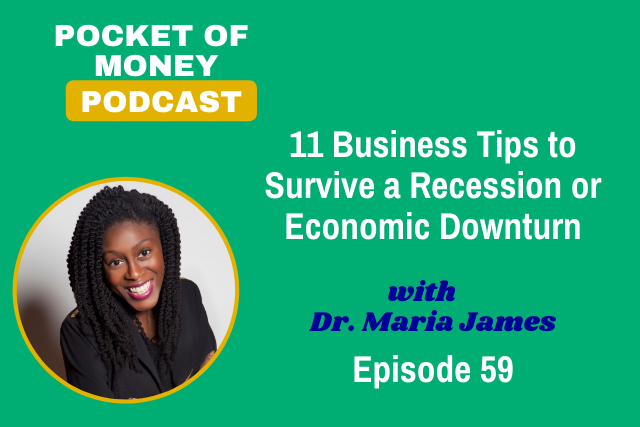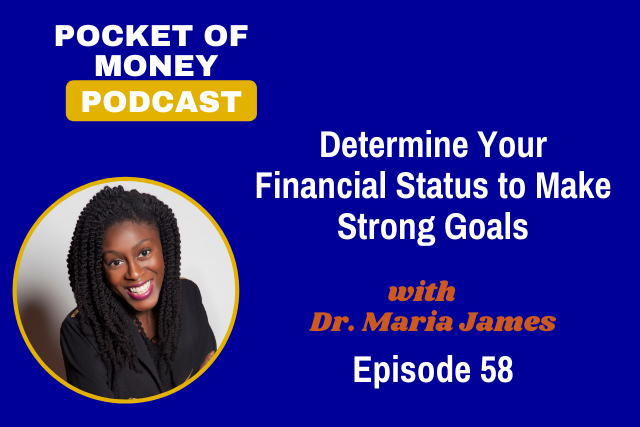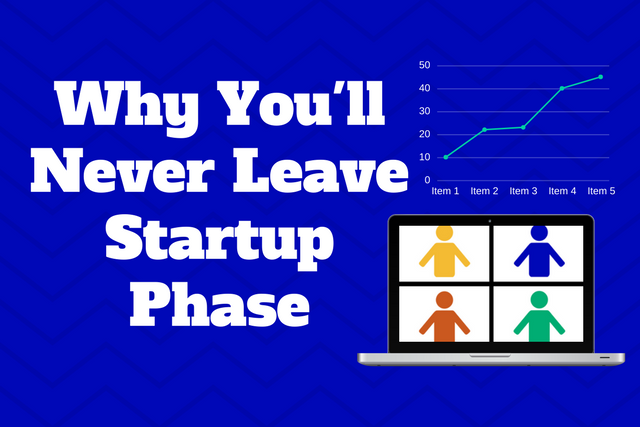POM021: How to Become a Better Saver

In this episode, we’re going to talk about what you can do to make yourself save more money. Being able to save money is crucial to the rest of the financial plan. You have to have money to put towards your financial goals.
Read it below or listen above. Resources listed below as well.
Hey Success Rebels, it’s Dr. Maria James, The Money Scientist. Before we jump into this episode, I want to remind those who want more guided approach to achieving financial goals and creating a legacy of wealth in a community of like-minded individuals to check out WISE Financial Fitness.
The system is designed to assess where you are and show you the steps to get from there to where you want to be. You take an assessment and receive a WISE Financial Fitness score. This score represents your financial fitness. You take your WISE Financial Fitness score and find it on the WISE Scale. This lets you know where on the roadmap you should start. The courses in the roadmap go from creating a wealth mindset through to investing. Check it out and get your wealth up.
Alright, in this episode, we’re going to talk about what you can do to make yourself save more money. Being able to save money is crucial to the rest of the financial plan. You have to have money to put towards your financial goals.
Most Americans are not great savers. According to data from Bankrate, 80% of Americans don’t have three months’ worth of bills saved. For the U.S. being one of the richest countries, we are some of the worst savers. According to the U.S. Bureau of Economic Analysis, we save about 5.5% of our income. If you’ve listened to other episodes of the Pocket of Money Podcast, attended any of my webinars or workshops, or are on my email list then you already know this is nowhere near where it should be. You want to work your way to saving at least 20% of your income. If you can save more, then that’s even better.
The problem is saving is not really built into our culture. Matter of fact you have to go against the norm to be a great saver. The norm and the expectation are to hit the sales and get the new trends. We have a huge, largely advertised, national sales day or several days basically every season.
- Spring – Memorial Day Weekend
- Summer – Labor Day Weekend
- Fall – Black Friday through Cyber Monday
- Winter – Holiday Sales
Now if you talk about good financial habits. There really aren’t any huge campaigns to promote those. We do have some days and weeks, that don’t get circulated as much. There is America Saves Week. This is usually end of February or early March. Then there are some financial experts and bloggers that host saving challenges. You basically have to be already in-tune and trying to do better with your finances in order to learn about them. Yeah, like listening to this podcast.
There’s no national coverage of an initiative to help you get your money right. So it can be hard to ignore or not buy into the spend mentality and save a lot of money instead. But it is possible, especially on the average person’s salary.
The average salary in the U.S. varies quite a bit by age, which is expected. Think back to high school and college. You’re just not earning that much money. Depending on your situation and the job you had, it may have felt like a lot if you didn’t have any bills. After my freshman year of college, I joined a program called INROADS. It finds students great paid internships in their industry of interest. So since I had no bills, it was great money. However, if I put that money in today’s context of household bills … yeah not so much.
According to the Bureau of Labor Statistics, the average salary of a 25-34 year old is $39,416 per year. The average salary for someone 34 – 44 years old is $49,400 per year. Of course I’m ignoring other demographic factors that change these numbers such as gender and race. Also, even if you’re making less than this, you can still save money and become a better saver. If you haven’t already, go back and listen to episode three where I talk about saving on a $23,000 a year stipend.
Alright, so what can you do to move from saving 5% or less of your income to saving 20% or more? Well you need to adopt a few wealthy habits.
1) Shift your mindset.
Move from the “I’m so broke, I can’t, I don’t” mindset. You have either heard people say or you also say things like “Girl I’m so broke, I can’t. Hmm, I guess I’ll be eating ramen for the rest of the month until my next check. Ugh, I wish I could buy this. Ugh, I’ll never be able to afford something like this.”
Instead of focusing on what you can’t do or what you don’t have at the moment (remember where you are now is not where you’ll be forever), focus on what you can do. What you focus on will grow. Don’t focus on the negative, focus on the positive.
When this happens you’ll shift to asking yourself, “What can I save? What can I do to put more money in saving? How can I free up more money? Do I really need this?” When you ask yourself these types of questions, you’ll focus on finding the answers to these questions, the solutions. You’ll be focused on finding ways to save more of the money you currently have. You’ll get more creative and research as well as create new ways to save more money, as well as earn more.
2) Use a budget and figure out how much you can save.
Once you know the amount you can save every month while still paying all your bills, you’ll be more comfortable actually saving that amount. You’ll see that you have more wiggle room than you thought, especially after streamlining or optimizing your budget.
I’ve had people say “oh I can’t save that much and still pay my bills.” However, after going through and taking some fluff out of their budget, we find the money.
3) Pay yourself first.
Treat your saving like a bill that must be paid every month and paid first. Make it non-negotiable in your mind. Something that may help you do that is to do an exercise where you picture and write out what financial freedom means to you. Think about:
- What age are you?
- Where are you?
- What activities you’re able to do?
- Who is with you?
- How you feel about paying bills, about money?
Now, every month that you fail to save money or pay off debt, you’re taking yourself further from that goal. You’re preventing that image of financial security that you want so much. Don’t block yourself. Invest in your future financial security by paying yourself first by putting the money in saving.
4) Automate your saving.
It takes discipline to month after month make the right decision when it comes to saving and not spending. Automation can definitely help with that. Take yourself and your discipline or lack thereof out of the equation. You know how much should be going towards saving every month so go ahead and set up an automatic transfer for that amount to your saving account.
In the previous episode, I mentioned some great apps that help you automatically save as well. Each has a unique twist. Listen to episode 20 to hear more about the apps Digit, Rize and Qapital. I’ll still link to these apps on the show notes page at pocketofmoney.com.
Also direct contributions towards your 401(k) or equivalent employer retirement account or an IRA, count towards your automatic saving. These are investment accounts not saving, but they can still count since they are taken directly out of your check. After completing your emergency fund, your saving is going to go towards investing aka acquiring assets that appreciate in value anyway.
5) Realize everything adds up.
Every dollar counts. Cents and dollars add up. You wouldn’t throw out $20 or $100 would you? Well guess what? Twenty $1 bills is $20 and one hundred $1 bills is $100. If you keep saying “it’s just $1 it doesn’t count,” then you will never reach that $100 you’re trying to save.
When you get any unexpected money, even if it’s a dollar, put it towards your financial goals. When you purchase something, save the change no matter how much it is. Oh the change is only five cents? Well put those five cents into a change jar. For those using apps, there are some that lets you keep the change from purchases. Some banks let you do that as well.
6) Determine what causes you to spend most.
What is your biggest spending category that is not a need? When you’re shopping really think about what is causing you to spend money. Go deeper than I needed it. Is it actually bringing an item home? Is it the thrill of the hunt? Searching to find the perfect buy that suits your needs? Is it that you’re not organized and this causes you to spend more than you need to spend?
For example, when I don’t do meal planning and grocery shopping, I tend to spend a lot more on food. I know if I don’t prioritize deciding on some meals and getting ingredients to make those meals, then I’ll blow my food budget.
What’s the equivalent for you? Analyze what is causing you to spend and perhaps overspend in some categories. Come up with solutions. Pocket the money you would have otherwise spent on something that isn’t a need and takes you further from your financial goals.
7) Don’t buy into sale mania.
I’ve had clients and subscribers brag to me about how they got a great deal on whatever item they bought. Hmm, it’s usually clothes. But it’s usually something like, “Oh my goodness, you won’t believe how much I saved on this coat. It was 70% off.” Now if it was in the budget no problem. If they had money in their clothing line item, and stayed within that amount then great. If you know me, then you know I love a good coat. So I’m all for it.
However, the issue is they blew their budgets. When I go over this and say, but now you’re over budget. It’s usually something like “but I saved such and such number of dollars. I’ve been looking for something like this for soooo long.”
You didn’t save money. You spent money and not only spent money, now you’ve overspent your budget. Just because something is on sale and you pay less for it than you would have paid if it wasn’t on sale, does not always mean you saved money. If you weren’t planning on buying the item, which means you budgeted for it at full price, then you simply spent money. You didn’t save money.
Remember this for the next time you see big sales signs and the percentage off signs. Don’t spend the money that is supposed to go towards your financial goals.
Keep it Safe. Avoid scams and fraud.
In the previous episode, we talked about making sure you were storing your saving in a secure place such as a FDIC insured bank account. Well, there is more that you can do to keep your money safe.
Beware of online and offline scams. There is no government entity or legitimate business that will ask you to pay a debt using gift cards or wire transfers. They will not tell you to go to Western Union or any other place to wire money. It’s not going to happen. That should be a major red flag that it is a scam.
If you’re not sure, just say ok thanks for letting me know I’m hanging up and calling back. Don’t take a number from them. If they try to get you scared to hang up saying you’ll go to jail etc. then that’s a second major red flag.
You’re working hard to save your money. Don’t let some fraudster or scammer get your life savings. Be smart about who you’re sending money. Make sure it is legitimate.
Resources Mentioned:
Disclaimer: Some of the links below are affiliate links. This means that if you decide the item will help you and buy it, I will earn a commission. There is no additional charge to you. However, I would never recommend anything to you that I wouldn’t use myself or wouldn’t recommend to my own family. I only recommend things that I believe will be helpful and useful. Do not buy anything unless you believe it will help you achieve your goals.
WISE Financial Fitness™ uses a unique algorithm to assess your financial status and give you the resources and information to build a legacy of wealth.
Digit, that allows you to save without thinking about it.
Rize allows you to save for more than one goal automatically.
Qapital allows you to set savings goals for specific things and save automatically. You set up rules for how you would like to save.
Thanks for listening:
If you have any comments or questions about this episode, leave a comment below. If you liked what you heard subscribe on iTunes and rate it. This helps the podcast show up for others.








Responses